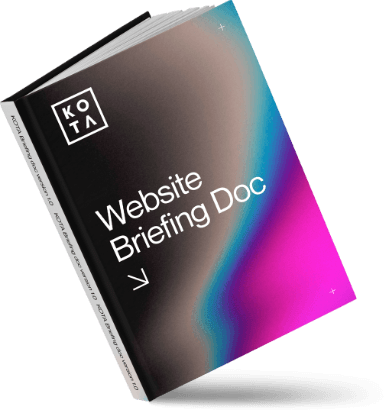Understanding Google’s E-E-A-T guidelines

In the world of SEO and digital marketing, staying on top of Google’s evolving guidelines is crucial for maintaining a competitive edge. One of the most important sets of guidelines to be aware of is Google’s E-E-A-T. If you’re not familiar with it, don’t worry—we’ve got you covered. Let’s break down what E-E-A-T is, why it matters, and how you can optimise your content to meet these standards.
What is E-E-A-T?
E-E-A-T stands for Experience, Expertise, Authoritativeness, and Trustworthiness. It’s a concept used by Google’s search quality evaluators to assess the quality of web content. Here’s a closer look at each component:
1. Experience
What it is: This new addition to the E-A-T framework focuses on the content creator’s first-hand experience with the topic. It considers whether the author has personal experience or direct interaction with the subject matter.
Why it matters: Content created by someone with real experience is often more valuable and credible to readers.
2. Expertise
What it is: Expertise refers to the level of knowledge or skill the content creator has on the subject. This is particularly important for YMYL (Your Money or Your Life) topics, which can impact a person’s health, finances, or safety.
Why it matters: Content that demonstrates clear expertise is more likely to be trusted by users and ranked higher by Google.
3. Authoritativeness
What it is: Authoritativeness (that’s a mouthful, isn’t it?) measures the credibility of the content creator, the content itself, and the website it’s published on. This includes credentials, reputation, and the presence of authoritative links and citations.
Why it matters: Google wants to ensure that content comes from sources that are recognised as leaders or authorities in their field.
4. Trustworthiness
What it is: Trustworthiness evaluates the reliability and integrity of the content. This includes factors like accuracy, transparency, and the website’s overall reputation.
Why it matters: Trustworthy content is more likely to be shared, linked to, and relied upon by users, boosting its ranking potential.
Why E-E-A-T matters
Google’s E-E-A-T guidelines are designed to ensure that users receive high-quality, reliable information. For businesses and content creators, adhering to these guidelines can significantly impact your SEO and overall online presence. Here’s why it matters:
- Improved rankings: Content that meets E-E-A-T standards is more likely to rank higher in search engine results pages (SERPs).
- User trust: High E-E-A-T content fosters trust and credibility with your audience, leading to increased engagement and conversions.
- Reduced risk: For YMYL topics, adhering to E-E-A-T guidelines helps reduce the risk of spreading misinformation or harmful advice. YMYL stands for “Your Money or Your Life” and is a term used by Google to describe topics that could potentially impact a user’s life. YMYL pages can include topics like:
- News and current events
- Civics, government, and law
- Finance
- Shopping
- Health and safety
- Groups of people.
Top tips for optimising your content for E-E-A-T
Now that you understand what E-E-A-T is and why it’s important, let’s dive into some actionable tips to help you optimise your content:
1. Showcase first-hand experience
- Use personal stories: Incorporate personal anecdotes and experiences to demonstrate real-world application and firsthand knowledge.
- Highlight author backgrounds: Clearly present the credentials and experiences of your content creators to establish credibility.
2. Demonstrate expertise
- Create high-quality content: Focus on producing well-researched, accurate, and comprehensive content.
- Update regularly: Keep your content up-to-date with the latest information and trends in your industry.
- Use data and references: Support your claims with data, studies, and references from reputable sources.
3. Build authoritativeness
- Earn backlinks: Aim to get backlinks from authoritative websites within your industry.
- Collaborate with experts: Feature guest posts or interviews with industry experts to boost your content’s credibility.
- Engage in online communities: Participate in forums, social media, and industry events to build your reputation as a thought leader.
4. Enhance trustworthiness
- Be transparent: Clearly disclose any potential conflicts of interest, sponsorships, or affiliations.
- Encourage reviews and testimonials: Collect and display positive reviews and testimonials from satisfied customers or clients.
- Ensure site security: Use HTTPS to secure your website and protect user data.
Summing up
Google’s E-E-A-T guidelines are a vital aspect of modern SEO and content strategy. By focusing on Experience, Expertise, Authoritativeness, and Trustworthiness, you can create high-quality content that not only ranks well but also earns the trust and loyalty of your audience. Implementing these tips will help you stay ahead in the competitive digital landscape and build a robust online presence.
Ready to elevate your content and meet Google’s E-E-A-T standards? At KOTA, we specialise in creating bespoke digital experiences that resonate with your audience. Get in touch today, and let’s take your content to the next level.
Interested in working with KOTA?
Drop us a line at
hello@kota.co.uk
We are a Creative Digital Agency based in Clerkenwell London, specialising in Creative Web Design, Web Development, Branding and Digital Marketing.






